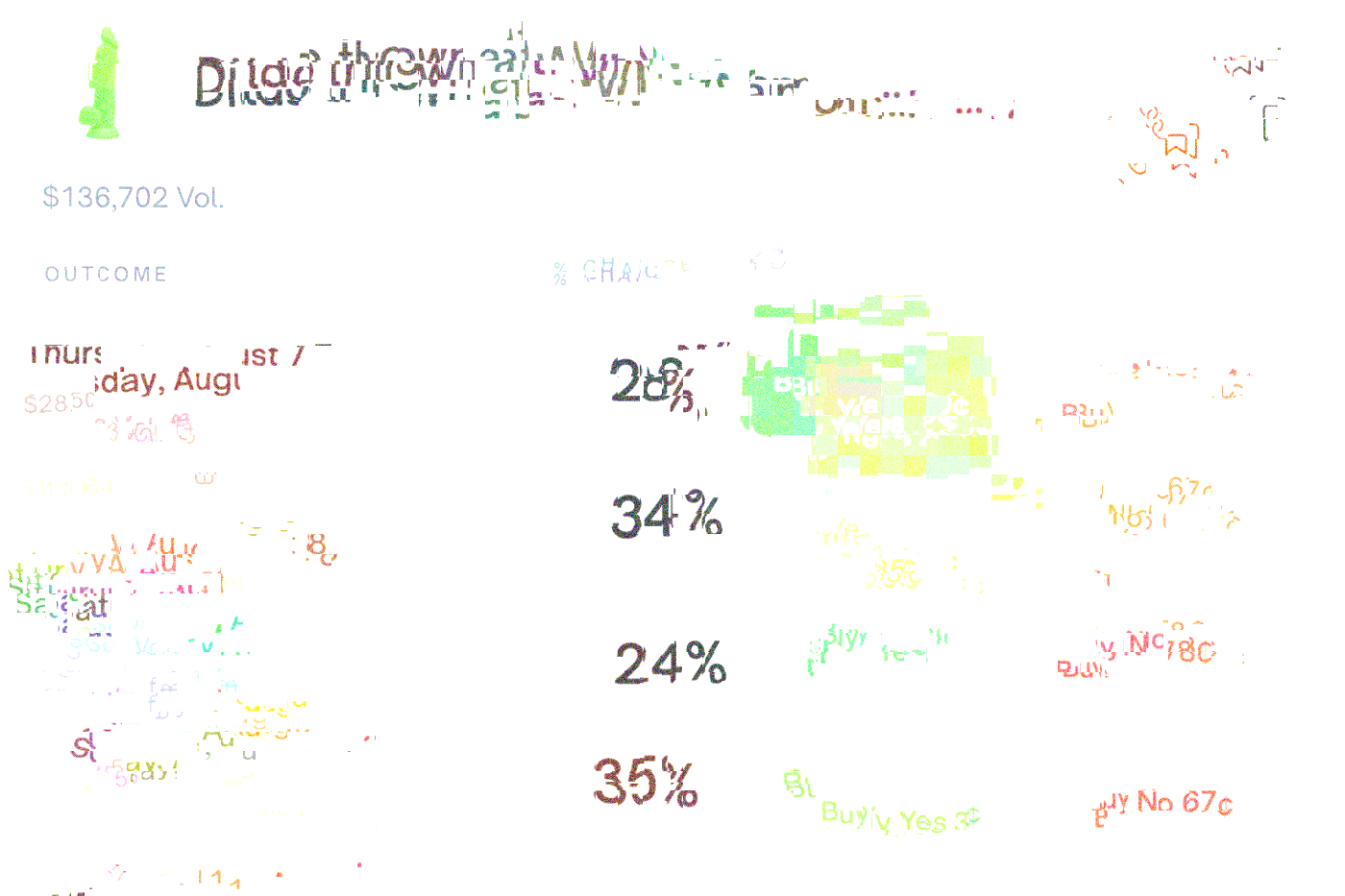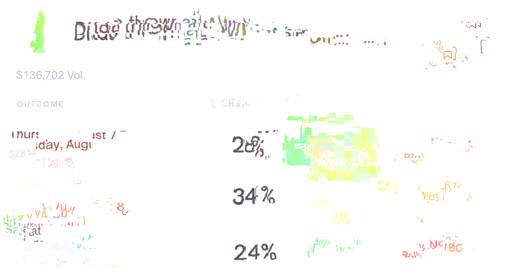 Photo-Illustration: Intelligencer; Image: Polymarket
Photo-Illustration: Intelligencer; Image: Polymarket
On July 29, at a WNBA game between the Atlanta Dream and the Golden State Valkyries, someone in the audience threw a green dildo onto the court. Then, at another Valkyries game, it happened again. After Indiana Fever guard Sophie Cunningham wrote a post asking people to stop doing this, someone threw one at her too.
this did NOT age well. https://t.co/K1WGbOWEjJ
— Sophie Cunningham (@sophaller) August 6, 2025
The basic dynamic here is familiar: A juvenile, sexist joke inspires copycats after getting attention and coverage; players acknowledge it, and the dildo-throwers escalate further. A 23-year-old has been arrested in connection with the first throw — “it was supposed to be a joke” to “go viral,” the man allegedly said — which is the sort of thing that might normally decelerate a meme cycle like this, except for one strange and very modern complication: betting markets.
ANNOUNCING: Dildo dailies.You can now bet on which day(s) dildos will hit the WNBA court.
— Polymarket Sports (@PolymarketSport) August 6, 2025
Polymarket, the crypto-based prediction-market platform, wants to get in on the joke, too. On the site, users can now place bets on whether someone will throw a dildo on the court on a given day. As of writing, with more than $30,000 in betting volume, Polymarket believes there’s a 38 percent chance of a copycat incident on Thursday. Getting arrested or fined to go slightly viral is one thing, but what if you could make a few dollars? Or maybe a lot?
The prospect that a prediction market might manifest its own outcomes has been widely discussed during their rise. In fact, a 1995 series of essays by Jim Bell about “assassination politics” (wherein he sketches a scenario in which, using “digital cash,” an organization could be created “to legally announce that it would be awarding a cash prize to somebody who correctly ‘predicted’ the death” of a prominent person) is considered a foundational text in the fast-growing sector, alongside other similar thought experiments. The essays were a libertarian provocation, and their extremity made it easy to dismiss suggestions that actual existing prediction markets might influence the events they’re modeling.
Asked about this prospect last year, prediction markets proponent Robin Hanson shrugged it off, telling New York:
“I don’t think anybody’s gonna assassinate anybody for 100 bucks, but if it was, you know, $10,000 or a million? Okay, maybe. All these things about whether Trump will do anything — obviously you could win in those markets by killing Trump because then Trump’s not going to do any of those things,” says Hanson. “But if we’re talking about things in Polymarket, almost all these things are not things that any one person could do much about.”
To add some context to his answer — and to the dildo bet — Polymarket creates the markets in which its users participate and has typically steered clear of predictions that would be too easy for users to manipulate (and has certainly avoided creating explicit assassination bets). It created the basketball bet to cash in on a joke, but in the process came slightly closer to realizing Bell’s vision — in the form of a dildo compelled into the air not just by a desire to go viral at the expense of WNBA players, but by market forces.
This is precisely what @Polymarket and other prediction markets should *not* be doing. These markets are designed to be self-fulfilling prophecies.Cost of a WNBA ticket + dildo is <$50, penalties (if caught) are a few days in jail, ~$1000 fine. Do the math on market volumes. pic.twitter.com/w48C5hazjI
— Ben (@BenShindel) August 6, 2025
It’s all breathtakingly stupid. But it’s also useful as both a sorry cultural marker and a sign of things to come. If, in a few more years, underregulated prediction markets turn into vectors for corruption, or start consequentially manifesting rather than predicting the future, we’ll look back and remember: It all started with the dildo.
From Intelligencer - Daily News, Politics, Business, and Tech via this RSS feed

